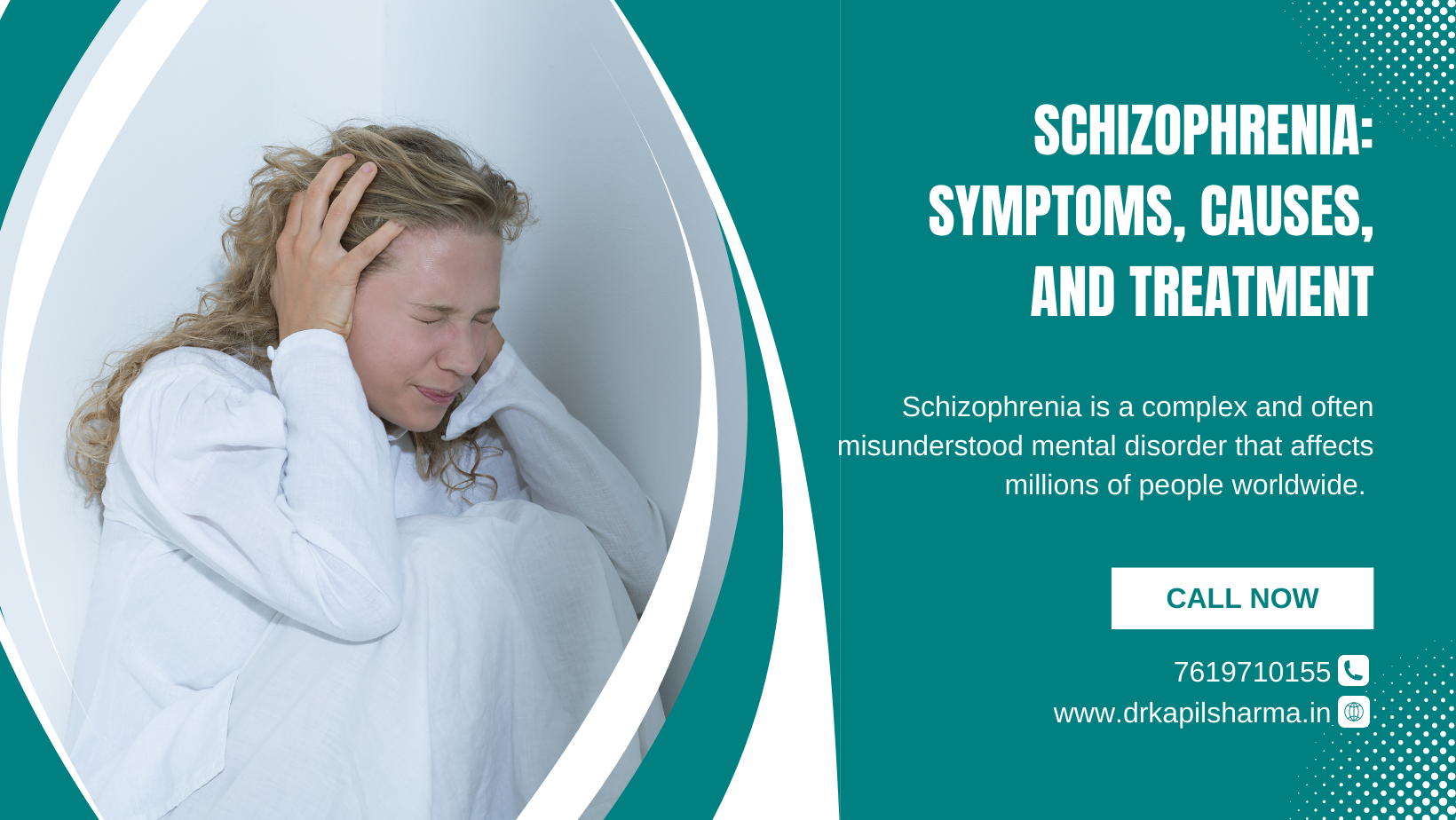
Schizophrenia: Symptoms, Causes, and Treatment
Schizophrenia is a complex and often misunderstood mental disorder that affects millions of people worldwide. It is characterized by a range of symptoms that can significantly impact a person’s thoughts, emotions, and behavior. In this article, we will explore the symptoms, causes, and treatment options for schizophrenia, shedding light on this challenging condition and offering insights into managing it effectively.
1. Symptoms of Schizophrenia: Schizophrenia presents a diverse array of symptoms, which can be categorized into three main groups:
1.1 Positive Symptoms: These symptoms involve an excess or distortion of normal functions and may include hallucinations (perceiving things that aren’t there), delusions (holding false beliefs), and disorganized thinking or speech.
1.2 Negative Symptoms: Negative symptoms involve a reduction or absence of normal functions and can include decreased emotional expression, social withdrawal, diminished motivation, and an overall decline in daily functioning.
1.3 Cognitive Symptoms: Cognitive symptoms affect a person’s cognitive abilities, such as memory, attention, and problem-solving. These symptoms can include difficulties with concentration, memory impairment, and reduced executive functioning.
2. Causes of Schizophrenia: The exact causes of schizophrenia remain unclear, but research suggests that a combination of genetic, environmental, and neurobiological factors contribute to its development. Some potential factors that may increase the risk of schizophrenia include:
2.1 Genetic Factors: Family history of schizophrenia or certain genetic variations can increase the likelihood of developing the disorder.
2.2 Environmental Factors: Prenatal exposure to infections, complications during birth, or exposure to certain toxins or drugs during early brain development may contribute to the development of schizophrenia.
2.3 Neurobiological Factors: Imbalances in brain chemicals (neurotransmitters) such as dopamine and glutamate, as well as structural and functional abnormalities in specific brain regions, have been associated with schizophrenia.
3. Treatment Options for Schizophrenia: Schizophrenia is a chronic condition that requires ongoing treatment and management. While there is no cure, various approaches can help individuals manage symptoms and improve their quality of life:
3.1 Medication: Antipsychotic medications are commonly prescribed to manage symptoms of schizophrenia. These medications help alleviate hallucinations, delusions, and other psychotic symptoms.
3.2 Psychotherapy: Different forms of therapy, such as cognitive-behavioral therapy (CBT), can assist individuals in managing their symptoms, improving coping skills, and enhancing their overall well-being.
3.3 Social Support and Rehabilitation: Supportive interventions, including vocational training, housing assistance, and social skills training, can help individuals with schizophrenia reintegrate into society and maintain a fulfilling life.
4. Holistic Self-Care: In addition to medical treatments, adopting a holistic approach to self-care is essential for individuals with schizophrenia. This may involve maintaining a healthy lifestyle, engaging in regular exercise, managing stress, and fostering a strong support system.
Conclusion
Schizophrenia is a complex mental disorder that can significantly impact individuals’ lives. Understanding its symptoms, causes, and treatment options is crucial for both affected individuals and their families. With proper diagnosis, appropriate treatment, and ongoing support, individuals with schizophrenia can manage their symptoms effectively and lead fulfilling lives. It is important to promote awareness, reduce stigma, and ensure access to comprehensive care for those living with this condition. If you want to need a Schizophrenia doctor in Jaipur then Dr. Kapil Sharma is the best mental doctor.

